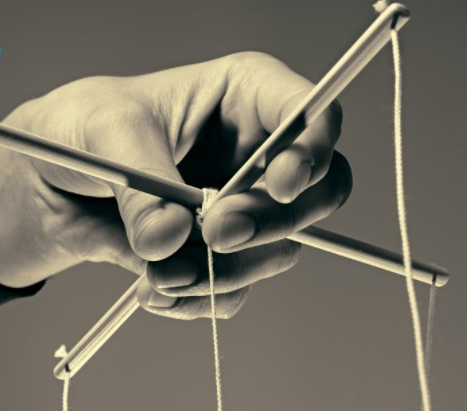You know those"Close Door" buttons in elevators?
你知道电梯里的“关门”按钮吗?
The one you hit over and over again... because the door still opens and you are like can we go up please?
因为门还开着,你一遍又一遍地敲打它……,你会想说我们能上去吗?
And you kind of suspect doesn't actually do anything?
你怀疑按钮不起作用?
Well, it probably doesn't. And hasn't for a while.
也许就是不起作用,有一段时间不起作用。
As part of the Americans With Disabilities Act of 1990, elevator doors are required to stay open long enough for someone in a wheelchair,
根据1990年《美国残疾人法》,电梯门开的时间必须足够长,以便坐在轮椅上的人,
or with trouble walking, to get on – and no button is allowed to make that shorter.
或者是行动困难的人能够上车——通过按钮来缩短时间是不允许的。
Firefighters can override it, but for the rest of us, it's a fake.
消防员可以忽视它,但对我们其他人来说,这个按钮是假的。
Our lives are full of other non-working buttons, too.
我们的生活中还有其他这样不起作用的按钮。
When cities switched over to using computers to time traffic signals, that meant many crosswalk buttons became shams for at least part of the day.
当城市开始使用电脑对交通信号计时时,这意味着至少在一天的部分时间里,许多人行横道的按钮是假的。
These buttons might be a little frustrating, but it's hard not to push them.
这些按钮可能有点令人失望,但很难不去按它们。
And the lie isn't all bad. In a small way, these placebos might even make you feel better.
谎言也不全是坏事。从小的方面来讲,这些安慰剂甚至可能让你感觉更好。
It comes down to something psychologists call perceived control.
这可以归结为心理学家所说的感知控制。
Perceived control is how much control you think you have over a situation.
感知控制是指,你觉得自己对情况有多大的控制力。
Sometimes your estimate is about right, or sometimes it's more or less than what you actually have.
有时你的估计是正确的,有时估计的比你实际的控制力要多或少。
But in general, studies suggest that thinking you have some control in life is a really big deal for physical and mental health.
但总的来说,研究表明,认为自己在生活中拥有一定的控制权对身心健康大有裨益。
Nursing home residents, for example, have been found to be happier, more active, and more alert when they are encouraged to make their own choices.
例如人们发现,疗养院的居民在被鼓励做出选择时,更快乐、更积极、更留心。
Employees are happier, healthier, and less likely to quit when they feel they have somecontrol over their schedules and job duties.
当员工觉得自己对工作日程和工作职责有了一定的掌控时会更快乐、更健康,他们也会不太可能辞职。
And people with panic disorders are less likely to have an attack when they're in control.
患有恐慌症的人在控制的情况下更不容易发作。
In one experiment, panic disorder patients were hooked up to an air mask that provided oxygen with a bit of extra carbon dioxide.
在一项实验中,恐慌症患者和空气面罩连接,这个面罩可以为患者提供额外的氧气和二氧化碳。
They were told they could lower the amount of CO2 by turning a dial that would light up if it was working.
患者被告知,可以通过转动拨号盘来降低二氧化碳的含量,如果拨号盘正常工作,拨号盘就会亮起来。
Half the patients had dials that lit up, half had the dials that did not.
一半的病人的刻度盘有亮起来,一半的病人的刻度盘没有亮起来。
In reality, none of the dials did anything, but the group that thought it was functional had fewer symptoms of anxiety.
事实上,转盘没有任何作用,但认为拨号盘功能正常的那组人的焦虑症状要少一些。

And the amazing thing is in many cases there is no difference in the amount of real control someone has.
令人惊讶的是,在很多情况下,人的实际控制力是没有区别的。
None of the panic attack patients could change anything.
恐慌症患者改变不了什么。
What matters is the perception of control. Which brings us back to those elevator or crosswalk buttons.
重要的是控制感。这就把我们带回到电梯或人行横道按钮的事情上来。
Can we really not tell when we're not in control?
我们真的不知道什么时候失去控制吗?
It turns out, people are remarkably good at deluding themselves.
事实证明,人们非常善于欺骗自己。
The psychologist Ellen Langer uncovered this tendency back in the mid-70s, when she set up a series of gambling experiments.
早在70年代中期,心理学家埃伦·兰格就发现了这种趋势,当时她做了一系列赌博实验。
In one, office workers were either given a lottery ticket, or allowed to select one from a pile.
在其中一个实验中,要么给办公室职员一张彩票,要么让办公室职员从一堆彩票中选一张。
Then they were asked how much they'd sell their ticket for.
然后问他们的票卖多少钱。
Even though the ticket they got was totally random, participants who got to pick their tickets for themselves thought that they were worth more,
尽管他们得到的票是完全随机的,但那些自己选择票的参与者认为他们的票更值钱,
and said they'd sell their tickets for higher prices.
并说他们会以更高的价格出售。
In another study, college students placed bets on whether a playing card pulled from the top of the deck would be higher than their opponent's.
在另一项研究中,大学生们下赌注:从牌堆顶部抽出的牌是否比对手的牌高。
They could wager up to a quarter – it was the ‘70s, after all.
他们可以下注二十五美分——毕竟那是70年代。
When students were matched with a well-dressed, confident opponent – who was in on the experiment – they bet less.
当学生们与穿着考究、自信的对手配对时,他们赌得更少。
And when matched with a shy, awkward person – who also turned out to be an actor – they bet more.
当和害羞、笨拙的人(表演出来的)配对,他们会赌得更多。
In both cases, everything was determined by chance – there was no way to affect the game – but participants acted as though they could.
在这两种情况下,机会是随机的——没有什么方法能影响游戏——但参与者表现得好像他们可以影响游戏。
Langer called this irrationally high sense of agency the illusion of control.
兰格将这种非理性的高度代理感称为控制幻觉。
It's when you think you have more control than you actually do.
控制幻觉,即你认为自己拥有比实际更多的控制权。
Exactly why we do this isn't clear. But our sense of being in control isn't a strict representation of reality.
确切原因还不清楚。但是我们的控制感并不是真实的。
It's a perception, something actively constructed by our brains.
它是一种感知,一种由我们的大脑积极构建的东西。
And it doesn't take much for us to link things together.
不需要多少东西就能把它们联系起来。
So, when it comes down to it, every time you push that elevator button, even if it feels like an eternity standing there with a bunch of strangers, the door does always close.
所以,每当你按电梯按钮的时候,和一群陌生人站在一起,感觉电梯门总是会关上。
It feels like you were in charge. And so, if it makes you feel better... go ahead, and keep pushing that fake button.
感觉像是你在控制。所以,如果它能让你感觉更好……继续,继续按那个假按钮。
For a jolt of real power, though, pound the open door button.
不过,要想获得控制感,你可以猛按开门按钮。
That one still works.
这个仍然有效。
Thanks for watching this episode of SciShow Psych, and especially to our patrons on Patreon!
感谢收看本期心理科学秀节目,特别感谢Patreon对本节目的支持!
If you'd like to support us, you can go to patreon.com/scishow.
如果你想支持我们,可以访问patreon.com/scishow。
And for two new psychology episodes every week, you can go to youtube.com/scishowpsych and subscribe!
如果你想每周看两集新的心理学剧集,你可以登陆youtube.com/scishowpsych订阅我们的节目!












